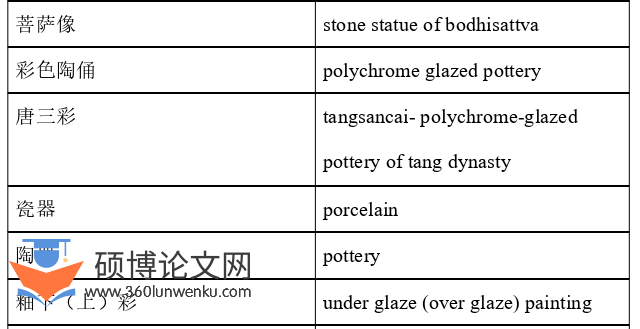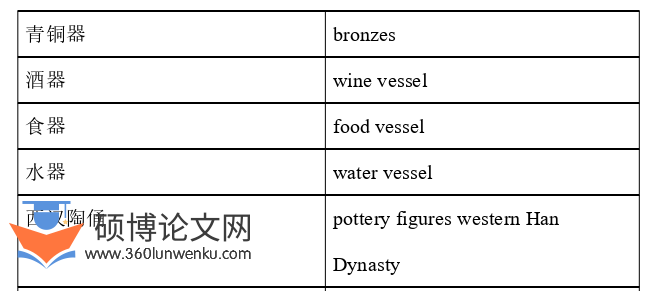本文是一篇英语论文,在汉英交替传译实践中,信息丢失是不可避免的,也是非常常见的。作者发现,有一些因素导致信息缺失,影响口译质量。第一个因素是源文本中信息的高密度。跨文化交际障碍也会导致信息丢失,因为在这次旅行中有太多的文化负载词。
Chapter One Task Description
1.1 Task Background
Nowadays,more and more foreigners show great interest in Chinaand want to see,taste and try things they have never seen before.Increasing overseas tourism to China highlights the importance oflanguage services for travel to better communicate with foreigners.Thus,a good escort interpreter who is well versed in both cultures is in hugedemand.An interpreter helps international guests feel welcome in theenvironment and provides familiarity and understanding of the localculture.Additionally,a qualified interpreter can seamlessly explaincultural differences to avoid some cultural confusion and help travelersnavigate the cultural divide to save face or the embarrassment thatcultural misunderstandings may bring.Especially on the tour of museum,a good interpreter can help foreigners learn more about the culturalaspects of China and bridge the gap between totally different cultures.

英语论文怎么写
This practical report is based on the author’s interpretation practicein Yangzhou Museum.On October 15th,2021,the author was entrustedby a friend to accompany Genevra and provided interpreting services forher.Yangzhou,sitting on the bank of the Yangtze River,was known asone of the wealthiest cities in China historically.The museum vividlydepicts the history of this beautiful city,which can help Genevra learnmore about Chinese culture.
............................
1.2 Task Features
In a nutshell,escort interpretation of museums has threecharacteristics.Firstly,it covers a wide range of areas.It goes withoutsaying that museum exhibitions,showing what was like thousands ofyears ago,cover almost everything of human in daily life.What’s more,museum interpretation often involves many technical terms,amongwhich most of them are archaeological and historical vocabulary,such asthe names of ancient artifacts,material,craftsmanship,texture,dynasty,etc.
Large cultural span between the East and the West is anotherdifficulty that confuses the author.To present Chinese cultural elementsin a way that can be understood and accepted by English native speakers,a qualified interpreter needs to handle the text to retain the originalnational and cultural characteristics,and then convey it to them.Finally,as a public place,museum has culturally,intellectually and age-diverseaudience.In dealing with the translation of professional vocabulary,interpreters should focus on the popular expression,and strive toaccurately interpret the information of the exhibits and the rich culturaland historical connotations carried by them.
.......................
Chapter Two Task Process
2.1 Pre-task Preparation
Due to the unpredictability of interpretation,the atmosphere of thescene will also cause some pressure on interpreters(Gile,1995).So,being prepared beforehand is of great significance.The more youprepared,the better your performance would be,especially forinterpreters.All things considered,it is unwise and risky to dointerpreting“unarmed”.To that end,an interpreter is supposed not only toprepare well on the task-related terms and relevant knowledge,but alsoknow more about the traveler.Besides,the mental preparation is alsoindispensable.When reading related materials of Yangzhou Museum,theauthor has made a glossary about equivalent Chinese/English expressionsof terminologies,which is an essential step in interpretation process.Itcan ensure both consistency and accuracy in interpretation.The authorhas also searched from the official website to make the parallel texts.They can help to understand text differences in the diverse textdimensions and increase the productivity of interpreters.The speaker’saccent should be taken into consideration as well.And on 10th October,the author traveled to Yangzhou Museum to get herself more familiarwith the place.
2.1.1 Glossary Building
A glossary is one of the resources that should be added to help theauthor get familiar with the key terminology and how it should betranslated.It can help the interpreter make fewer mistakes by using theapproved translations of words and phrases.More importantly,nailingdown terminology can certainly smooth the interpretation process,avoiding unnecessary stress and anxiety.Since it is an escort interpretation of museums,chances are that words and phrases are mostlyarchaeological relics related.So,the author has collected glossary fromfour aspects,which are bronzes,sculpture,porcelain,pottery and so on.
.............................
2.2 On-site Interpreting
On October 15th,the interpreter arrived at the museum an hourearlier about 1p.m.She then contacted the guide named Chen Hua tomake sure she was available at 2 p.m.The author made a quick touraround the museum to check whether everything was ready.About 45minutes later,Genevra got there.The interpreter firstly made a briefintroduction of herself and the Yangzhou Museum.
After that,the author started her escort interpretation from the firstfloor along with the guide.The whole process lasted about 1 hour.Though thoughtfully prepared,several problems still exited.First andforemost,the guide walked a bit faster than expected,so that Genevrafound it hard to both catch up with what the author said and exhibitionsshown alongside.Too much terminology and phrases are another problem,resulting in unclear expressions and information loss.All in all,thisinterpretation practice could be regarded as a complete success for itindeed enables Genevra to learn a lot about Chinese culture and she isgreatly satisfied.
........................
Chapter Three Theoretical Basis..................................9
3.1 The Triangular Model of the Interpretive Theory...........................9
3.2 The Development of the Interpretive Theory...............................1
Chapter Four Case Study................................13
4.1 Reasons for Information Loss..................................13
4.2 Coping Tactics for Information Loss in Escort Interpreting........13
Chapter Five Conclusion...........................19
5.1 Summary.....................................19
5.2 Problems in Interpreting Practice and Limitations.......................20
Chapter Four Case Study
4.1 Reasons for Information Loss
Escort Interpreting is a complex cognitive and linguistic activity,which has something to do with a lot of aspects,such as linguistic aspect,cognitive aspect and social and cultural aspects.Because of multi-taskingand too many culture-loaded words,information loss happens frequently,even inevitably.the author has summarized some factors contributing toinformation loss.
Our world is getting closer to become a global community whereindividuals frequently interact and communicate with other people whohave totally different cultural backgrounds.Intercultural communicationis one of the highly demanded skills in today’s society.The basicdefinitions of Intercultural communication is the process of exchangingideas,feelings and information between the sender and the receiver.Intercultural communication occurs when the sender and receiver comefrom different cultures.Therefore,cultural diversity is one of the reasonsfor intercultural communication barriers.The way people communicatevaries within different cultures and usually have their own specificmeanings.
During escort interpreting,the author encountered too muchinformation in the source language.It is often shown as long sentences,complex structures,many proper nouns,obscure words.And thecommentaries in museums belong to public signs,which have the featureof loose sentence patterns and hidden logical relationship.Tourcommentary plays an important role not only in transferring informationbut also in disseminating culture.In this case,interpreters facetremendous pressure in the process of information input and storage,which makes information loss almost inevitable.

英语论文参考
..........................
Chapter Five Conclusion
5.1 Summary
In the practice of consecutive interpreting of Chinese-English,information loss is inevitable and very common.The author finds thatthere are some factors causing information missing and affecting thequality of the interpretation.The first factor is high density of informationin the source text.Intercultural communicative barriers also causeinformation loss because there are so many culturally-loaded words inthis travel.
In order to eliminate that,this report analyses the issue ofinformation loss in escort interpretation on the basis of InterpretationTheory.The theory focuses on meanings,not words.And the core of it isthe triangular model,which redefines the translation steps as“comprehension—deverbalization—reformulation”.Since the goal ofinterpretation is to convey communicative meaning,then the first thing aninterpreter should do is to fully understand the message that the originaltext is intended to convey.So,when someone fails to comprehend thesource text,the strategy of guessing can be used to solve the problem ofinformation loss.Besides,an important principle of the interpretiveTheory is to detach from the source language shell and directly find itstrue meaning.Therefore,to ensure integrity and consistency of sentences,amplification and paraphrase are good ways of getting rid of the literalform and expressing true meanings.
reference(omitted)
